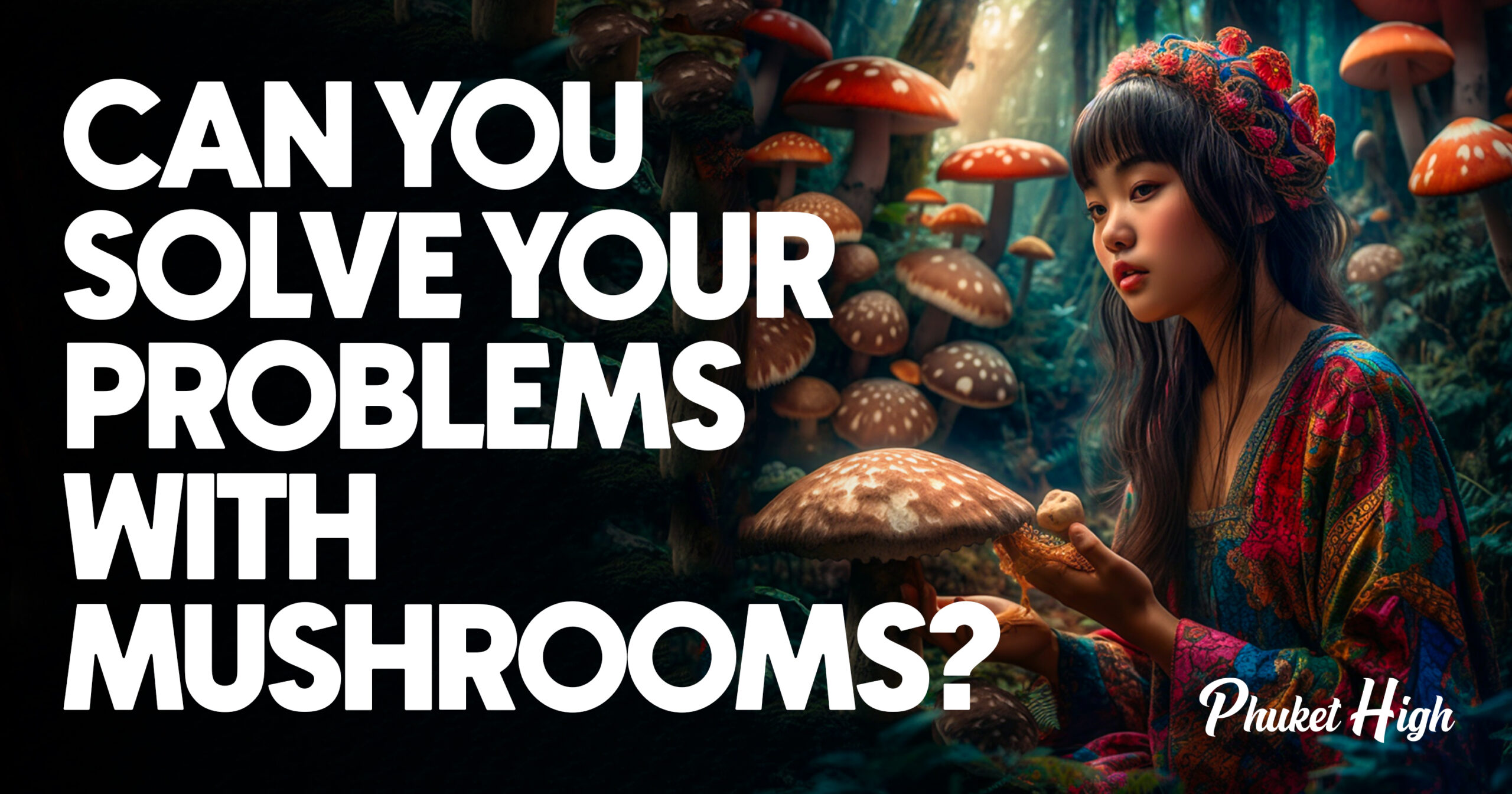Medicinal mushrooms like Lion’s mane, shiitake, Reishi, Magic Mushrooms, and Maitake have long been traditionally used for their therapeutic roles. These mushrooms are rich in bioactive compounds like alkaloids, triterpenoids, polysaccharides, and essential nutrients that help in promoting healthy living.
Apart from serving as a source of medicine, medicinal mushrooms are also utilized as food thanks to their high nutritional value. Researchers have identified mushrooms as superfoods since they contain all the essential nutrients for human growth and development. They also contain some vital compounds that provide antioxidant activity.
Medicinal mushrooms are potent agents for immune support and improving cognitive function. They achieve this feat by interacting with the serotonergic system, which controls cognitive activities and improves immunity.
Over the years, medicinal mushrooms have been identified to possess many therapeutic benefits, including serving as an anti-cancer agent, anti-inflammatory agent, and antiviral properties. The interaction between medical mushrooms and neurotransmitters can also help to protect against neurological disorders.
Some medicinal mushrooms may possess adaptogenic properties. This describes when compounds in medicinal mushrooms help the body adapt to stressors. Other bioactive components in medicinal mushrooms can activate white blood cells and trigger the activity of natural killer cells and other immune cells to promote immunity.
In addition, Shiitake, Maitake, and Magic mushrooms are commonly used in traditional medicine to support immune function while reducing inflammation and cognitive decline. In recent times, magic mushrooms have been reported to possess some important therapeutic benefits, which are often accessed when microdosing. Other benefits of medicinal mushrooms are summarized below;
- antioxidants
- Help to balance blood sugar
- Increase energy and stamina
- Provide immune support
- Support a healthy inflammation response
- Support brain health and cognition
- Support the nervous system
Could Medicinal Mushrooms be the Key to Improved Cognitive Function and Mood?
Medicinal mushrooms like psilocybin mushrooms and lion’s mane have been widely reported to possess some excellent therapeutic benefits on cognitive function. They improve cognitive function and mood via one of the following mechanisms.
- Supporting the formation of new brain cells (neurogenesis): researchers have reported the role of psilocybin mushrooms and Lion’s mane mushrooms in triggering the regeneration and growth of new brain cells. This has been identified to improve cognitive function, including learning and memory.
- Reducing inflammation: the anti-inflammatory role of medicinal mushrooms can deal with several forms of chronic inflammation linked to neurodegenerative diseases or cognitive decline. Note that these activities help to protect the brain against any harmful activity of free radicals and other harmful chemicals.
- Balancing neurotransmitters: alkaloids and other bioactive components in medicinal mushrooms can regulate the level of neurotransmitters in the brain, such as dopamine and serotonin. Their ability to interact with the serotonergic and similar systems can balance the activity of neurotransmitters, thus improving mood, memory, and cognitive function.
- Boosting antioxidant activity: medicinal mushrooms contain powerful antioxidant agents like alkaloids, polysaccharides, and beta-glucans. They can protect the brain from oxidative stress, which leads to cognitive impairments and neurodegenerative diseases.
- Improving blood flow: improving blood flow to the brain can increase cognitive function since it helps to increase the delivery of oxygen and nutrients to the brain.
The Power of Microdosing: Can Psilocybin Improve Your Problem-Solving Skills?
Several researchers have examined the role of psilocybin in improving cognitive function and problem-solving skills. Although considered a hallucinogenic compound, psilocybin can improve cognitive function and promote mental health when consumed in smaller doses. This is why scientists are considering possibly introducing psilocybin therapy for PTSD and dementia.
A study published in the Journal of Psychoactive Drugs found that psilocybin can enhance creative thinking and problem-solving ability. They were given a moderate dose of psilocybin and asked to complete tasks designed to assess their problem-solving skills and creativity.
The results of the study showed that participants who had taken psilocybin performed better on the tasks than those who had not. They were able to come up with more creative solutions to problems and were better able to think outside the box.
One theory behind this effect is that psilocybin alters how the brain processes information, allowing for more diverse and flexible thinking. Another theory is that psilocybin enhances connectivity between brain regions, allowing for better communication and collaboration between cognitive processes.
The Benefits of Microdosing: Can Psilocybin Enhance Your Creativity and Productivity?
Microdosing is taking a small, sub-perpetual dose of a psychedelic substance like psilocybin, THC, and LSD every few days.
Evidences are pointing to the possible role of psilocybin in boosting creativity and productivity in users, especially those who microdose on magic mushrooms. Although the ideal concentration of a microdose may vary, a psilocybin dose of 0.1 to 0.3g can be considered a microdose.
A study in the Journal of Psychoactive Drugs in 2018 found that microdosing on psilocybin improved participants’ productivity, focus, and creativity.
Another study in the Journal of Psychopharmacology in 2012 affirmed that microdosing on psilocybin increased creativity and openness to new experiences among participants. However, the effect of this study was only observed in the short term, and scientists are quite unsure what will happen in prolonged usage.
In addition to the stated benefits above, people who microdose on psilocybin are most likely to report the following benefits;
- Improved cognitive function
- Enhanced creativity and productivity
- Improved mood and focus
- Lower levels of anxiety and depression
Conclusion
While medicinal mushrooms may offer a wide range of therapeutic benefits, from immune support to cognitive function, they may also possess some challenges, such as increased anxiety, hallucination, and the possibility of mistaking them for poisonous mushrooms. This is where expertise in identifying mushrooms and microdosing comes to play. While micro dosing will help to mitigate the psychoactive effect of medicinal mushrooms or compounds in the mushrooms.

